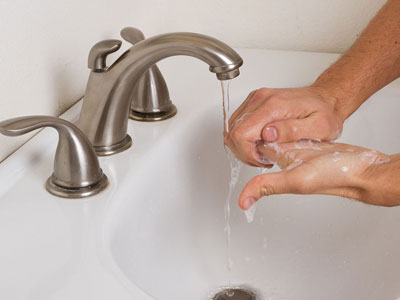Mental health conditions are the most common cause of disability in the United States and worldwide. They can also lead to more serious and potentially life-threatening issues if left untreated. Substance abuse and addiction can evolve from efforts to self-medicate to serious health consequences and accidental overdoses. But there’s hope. The right treatment can help provide healing in every mental health crisis or situation, no matter what the diagnosis is.
At FHE Health, we specialize in offering mental health rehab in Florida. We’re able to treat the vast majority of primary mental health disorders, whether they occur on their own or with a secondary disorder like substance abuse. Our approach is personalized, so every patient receives the treatment protocol that matches their unique needs.
Are You or a Loved One Ready for FHE’s Mental Health Rehab in Florida?
Our compassionate and judgment-free environment has helped many overcome their addictions. Learn more about our Florida mental health rehab programs.
If you’re feeling afraid, alone or in despair because of a mental health problem, contact us any time, day or night. We’re here to help you start feeling better and restore your mental health. For more information about our fully dedicated program for people whose mental illness is a primary condition, we invite you to read on.
The Reality of Mental Illness in America
As of 2022, the National Institute on Mental Health (NIMH) reported that more than 1 in 5 American adults lives with some type of mental health disorder. Anxiety and depression are the most prevalent psychiatric disorders, but rates of other illnesses, such as bipolar disorder and post-traumatic stress disorder (PTSD), have also risen.
Mental health statistics also show that most adults with a mental health condition don’t receive the help they need. In 2021, only 47.2% of American adults with a mental health illness reported seeking treatment.
Mental health is a complex issue that can significantly impact various aspects of a person’s life if left unaddressed. Seeking support is vital.
The Stigmatization of Mental Health
Despite growing research in mental health that indicates genetics and other biological factors are at the root of mental illness for many individuals, mental health still holds a strong stigma in modern society. Unlike physical diseases, mental disorders are often negatively stereotyped, leading to judgment and discrimination in the workplace, in relationships and even at home.
Until the passage of the Affordable Care Act, mental health didn’t have to be covered under most insurance plans, creating large holes in the accessibility of care. Even today, many employers don’t see taking time off to treat mental illness in the same light as treating medical illness. Finding appropriate help can be a challenge, too, as therapy can be cost-prohibitive; those without insurance or with limited means may not be able to afford care. The end result of these and other factors is that many people in need of treatment go without it.
What Is Mental Health Rehab?
Sometimes, speaking to a therapist may not be enough to manage a mental health issue. In these cases, a more comprehensive level of support in the form of mental health rehab can offer the stability and guidance necessary to facilitate meaningful progress and recovery.
Mental health rehab, similar to inpatient rehab for drug and alcohol abuse, is designed to help patients manage their symptoms, develop healthy coping tools and learn to live a normal life with their diagnosis. Mental health disorders can manifest differently from one patient to another, which is why a customized treatment plan is key.
Often, an inpatient mental health facility (also known as a residential treatment program) is recommended for individuals who are struggling with intense mental health symptoms. Outpatient care can be an affordable and easier option for those who believe they don’t require 24-7 support.
Mental Health Treatment at FHE Health
At FHE Health in Florida, our mental health program is designed to meet the needs of those with primary mental health issues, including depression, anxiety, bipolar disorder, schizoaffective disorder and other conditions.
We take a comprehensive approach to mental, emotional and psychological wellness. Our team of psychiatrists is available around the clock to provide counseling, psychopharmacology education and medication management. Patients in our care receive five mental health groups per week, daily check-ins with therapists and doctors and neurotherapy sessions that promote positive results and personal growth.
Our personalized mental health services include dialectical behavior therapy skills, mental health education, supportive group therapy and practical coping skills. By blending a combination of clinical resources such as behavioral therapy with holistic options like massage and acupuncture, we create treatment plans that cater to every patient’s therapeutic needs.
Neurorehabilitation in Mental Health Treatment
Neurorehabilitation is a cutting-edge therapy that helps rehabilitate the brain and boost the effectiveness of therapy and medication. The benefits of our neuro therapies include a reduction in symptoms like anxiety, depression, insomnia and sleep disturbances, as well as greater resilience to stress. (Stress is a major contributor to brain dysfunction and mental health problems.)
Using advanced neuroimaging technologies, we can pinpoint areas of brain activity that are problematic, allowing us to provide targeted treatment for your unique symptoms. With the help of the same technologies, we can also monitor and evaluate your progress in treatment and tweak interventions where needed.
The Connection Between Mental Health and Addiction
While 23.1% of Americans live with some form of mental illness, around 3.8% have a substance use disorder. Tragically, approximately 19.4 million Americans live with both conditions, struggling to work through both symptoms of mental illness and the effects of addiction. Unfortunately, addiction often worsens the symptoms of mental illness; in worst-case scenarios, drug or alcohol use can even amplify or trigger conditions, such as hallucinogenic drugs contributing to schizophrenia or a psychotic break.
Statistically, those with mental health disorders are more likely to use drugs or alcohol and consequently more likely to develop an addiction. In many cases, this creates a vicious circle of sorts. Without self-medicating, it’s hard to find relief from the sensations caused by mental illness — but this in turn makes it harder to quit. For this reason, it’s exceptionally important that those with a dual diagnosis of mental illness and addiction seek professional help specific to both substance use and mental health.
For those with co-occurring disorders, rehabilitation that ignores one aspect or the other can lead to treatment that fails to address the reality of the situation, causing ineffective therapies and a heightened risk of relapse. Instead, psychologists and psychiatrists should be prepared to address the root causes of illness and addiction as much as possible rather than focusing on surface-level symptoms.
How FHE Health Can Help
With the prevalence of both mental illness and addiction in the United States, help that can guide patients in all walks of life is essential. Florida’s FHE Health provides a path forward for those with mental illness, a substance use disorder or a combination of the two. Through our fully dedicated and separate treatment program for patients whose primary diagnosis is a mental health condition, we can provide a safe, stable place for participants to come to terms with their situation, learn how to cope with and manage their symptoms and achieve a significantly better quality of life.
We pride ourselves on being at the forefront of mental health care in Florida, offering cutting-edge approaches that integrate the medical, psychiatric and clinical components of treatment. Our experts firmly believe any mental health diagnosis should be quantifiable, enabling us to create, measure and refine treatment goals for the benefit of every member of our community.
We realize that mental illness comes in many different forms and that effective treatment options must accommodate a wide range of needs. We can assist with different types of mental health disorders, including:
If you or someone you love is suffering from a mental health issue and feels like there’s no way out, help is here. FHE Health is Florida’s top-tier rehabilitation center, committed to providing personalized resources for those facing mental illness, using proven techniques and cutting-edge innovations to pave a path to a brighter future.
For more information, contact us today. We’re available 24 hours a day, 7 days a week, to help you lead your best life yet.
Mental Health Conditions We Treat

ADD & ADHD
A disorder in which individuals display characteristics such as distraction, impulsiveness, hyperactivity and poor attention.
Learn More
Anxiety
Anxiety can be described as the constant feeling of an alarm going off when an individual feels stressed or threatened.
Learn More
Bipolar Disorder
A disorder which causes changes in an individual’s moods, energy levels and prevents the ability to handle day-to-day tasks.
Learn More
Depression
When left untreated, depression can lead to serious long-term effects, such as feelings of loneliness and thoughts of suicide.
Learn More
Eating Disorders
A condition in which an individual displays abnormal eating habits, negatively affecting their mental and physical health.
Learn More
OCD
A mental health disorder in which individuals frequently experience repetitive, obsessive thoughts and compulsive behaviors.
Learn More
Personality Disorder
A personality disorder can significantly disrupt the lives of both the affected person and those who care about that person.
Learn More
PTSD
A disorder that may develop after experiencing or witnessing something traumatic, shocking, scary, or life-threatening.
Learn More
Substance Abuse
Most individuals suffering from substance abuse disorder may want to quit using, but the urges are too strong to control.
Learn More










